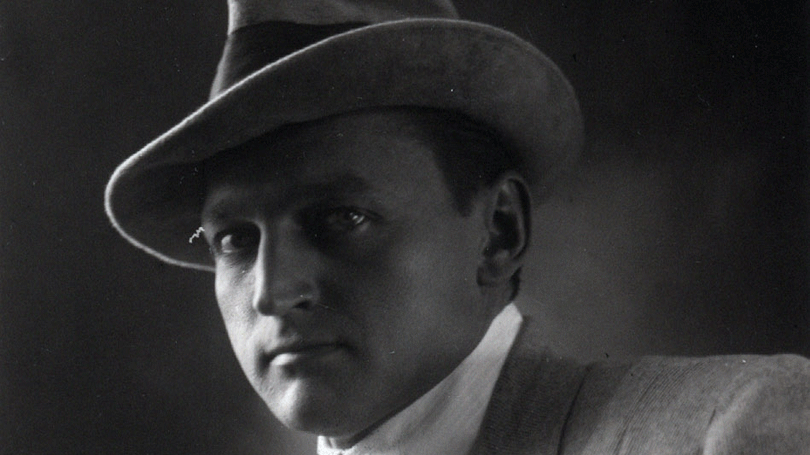Actor , 28 May 1884 – 4 Nov. 1972.
After graduating from Gymnasium, Johannes Meyer twice applied to the Royal Theatre School and twice was rejected. He had his debut in 1905 at Dagmarteatret, Copenhagen, in Dansen på Koldinghus, and went on to perform at nearly every theatre in Copenhagen. He was director of Fønixteatret and Nørrebros Teater before he was hired by the Royal Theatre in 1941, at age 57. There he had several triumphs, including as Willy Loman in Death of a Salesman, Phil Hogan in A Moon for the Misbegotten and Big Daddy in Cat on a Hot Tin Roof.
Meyer was active in TV drama and, throughout his career, in radio drama, where he was frequently used as an announcer. In his later years, when stage work became difficult for him because of a knee injury, he got many radio jobs.
In 1953 Meyer acquired the concession to the Regina cinema in Århus, and in 1960 for Metropolteatret in Copenhagen.
Meyer made an early film debut in Revolutionsbryllup (1910). He acted in 13 silent films, among them a fine performance alongside Bodil Ipsen in Lavinen(The Rocks of Life) (1920).
By his own account, he spent 1916-1917 in Hollywood, but he never broke through in America.
In Leaves from Satan’s Book, which premiered in 1921 (and was shot in 1919), he plays the central role in the film’s second episode about the Spanish Inquisition as the unhappily-in-love monk Don Fernandez y Argote who ends up being a pawn in the game of the Inquisition. It is a highly convincing performance that clearly shows the tormented monk struggling with his guilty conscience.
That same year Meyer appeared in Dreyer’s next film, Love One Another, as Rylowitsch, a police spy. The film was shot in Berlin with a stellar, mostly Russian cast and German technicians. Dreyer, Meyer and the film’s architect Jens G. Lind were the only Danes in the production. Meyer’s portrayal of the police provocateur was singled out as the most significant performance in the film.
Master of the House from 1925 stars Meyer as Victor Frandsen, a watchmaker who is a tyrant to his unhappy, cowed wife Ida (Astrid Holm). Meyer’s portrayal of his character’s development from stern, controlling husband to loving family man is supreme, though he may be outshined by the sympathetic nursemaid Mads (Mathilde Nielsen) who is responsible for his transformation.
In between Love One Another and Master of the House Meyer tried his hand as a director of two films for Tumlingfilm, Smil og Taarer and En Kæreste for meget. Both films are folk comedies and the only films made by Tumlingfilm, a company Meyer had founded with Alice O’Fredericks.
When sound films took over, Meyer’s career took off. He had a wealth of parts, especially in the 1940s and 1950s, notably in Gaa med mig hjem, Afsporet, Støt står den danske sømand (for which he received a Bodil Award for best performance in a supporting role), Café Paradis, Mød mig på Cassiopeia and Tine.
Meyer is often mentioned in the same breath as the Danish acting legends Poul Reumert and Clara Pontoppidan. All three were of the same generation and played a host of character roles on stage and screen. A master of the supporting part, Meyer generally played cranky old men but also had some comedic roles. He had a wide range and always managed to bring out the humanity of his characters. His characteristic, gravely voice, which he once described as a "trash can," was put to good use in many brusque or criminal parts, though it could also express pain and delicacy, as in Besættelse from 1944.
In a letter to Dreyer of 28 April 1955, Meyer calls the director "an old friend from my youth." He has only "happy and light memories" of their silent-film days, while expressing his sincere disappointment that he didn’t get a role in Dreyer’s "recent masterpiece" (The Word). Meyer also praises Dreyer’s "singular skill." However, he and Dreyer were never close friends.

